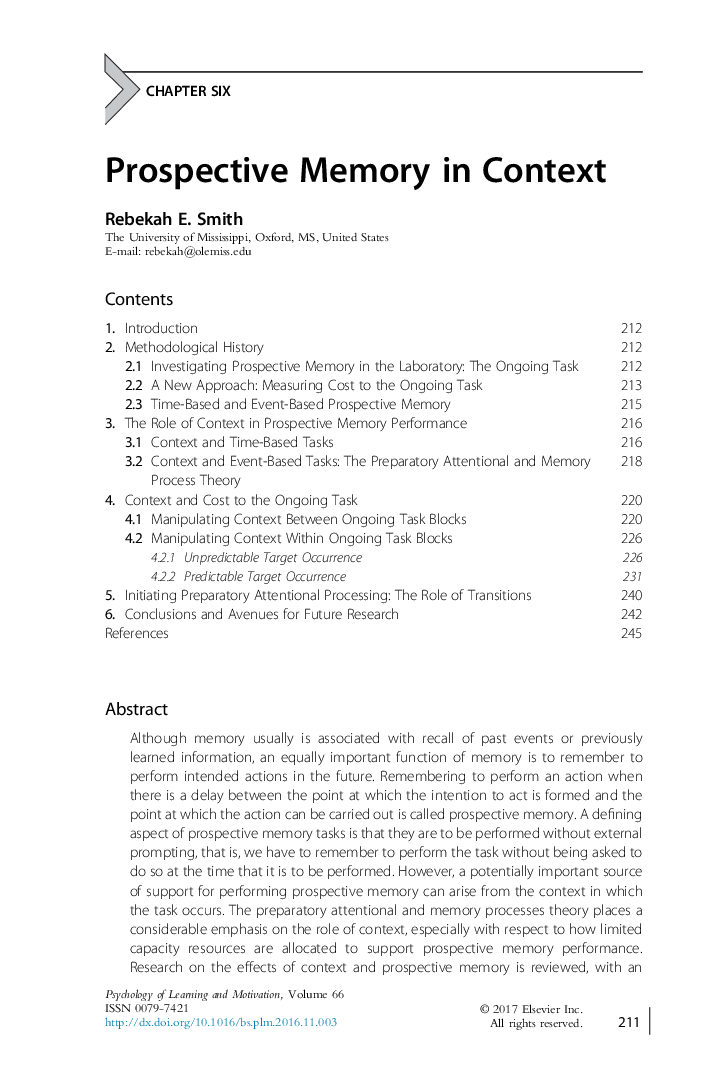ترجمه فارسی عنوان مقاله
حافظه آینده نگر در متن
عنوان انگلیسی
Prospective Memory in Context
| کد مقاله | سال انتشار | تعداد صفحات مقاله انگلیسی |
|---|---|---|
| 154525 | 2017 | 39 صفحه PDF |
منبع

Publisher : Elsevier - Science Direct (الزویر - ساینس دایرکت)
Journal : Psychology of Learning and Motivation, Volume 66, 2017, Pages 211-249
ترجمه کلمات کلیدی
متن نوشته، هزینه، اهداف تاخیری تقسیم رویداد، حافظه احتمالی،
کلمات کلیدی انگلیسی
Context; Cost; Delayed intentions; Event segmentation; Prospective memory;
ترجمه چکیده
اگر چه حافظه معمولا با فراخوانی رویدادهای گذشته یا اطلاعاتی که قبلا آموخته شده است مرتبط است، عملکرد حافظه به همان اندازه مهم است که به یاد داشته باشید برای انجام اقدامات مورد نظر در آینده است. یادآوری برای انجام یک عمل زمانی که تاخیر بین نقطه ای که قصد عمل است شکل گرفته است و نقطه ای که اقدام می تواند انجام شود حافظه آینده نامیده می شود. یک جنبه تعریف از وظایف حافظه احتمالی این است که آنها باید بدون اعلان خارجی اجرا شوند، یعنی ما باید به یاد داشته باشیم که کار را انجام دهیم بدون آنکه خواسته شود که در آن زمان انجام شود. با این حال، یک منبع بالقوه مهم برای حمایت از حافظه احتمالی می تواند از زمینه ای که در آن کار رخ می دهد، بوجود آید. فرایند یادآوری و یادآوری آمادگی تئوری تاکید زیادی بر نقش محتوا دارد، به خصوص با توجه به اینکه منابع محدود ظرفیت محدود برای حمایت از عملکرد حافظه آینده مشخص شده است. تحقیق در مورد اثرات زمینه و حافظه احتمالی بررسی شده است، با تاکید بر چگونگی چگونگی تخصیص منابع توجه و چگونگی استفاده از متون برای شروع پردازش توجه به مقدماتی، بررسی شده است. این مرور کلی منجر به پیشنهاد همبستگی بیشتر بین حافظه احتمالی مبتنی بر زمان و مبتنی بر رویداد نسبت به مواردی است که اغلب فرض شده است و با تعیین فرصت برای تحقیقات آینده نتیجه گیری می شود.

